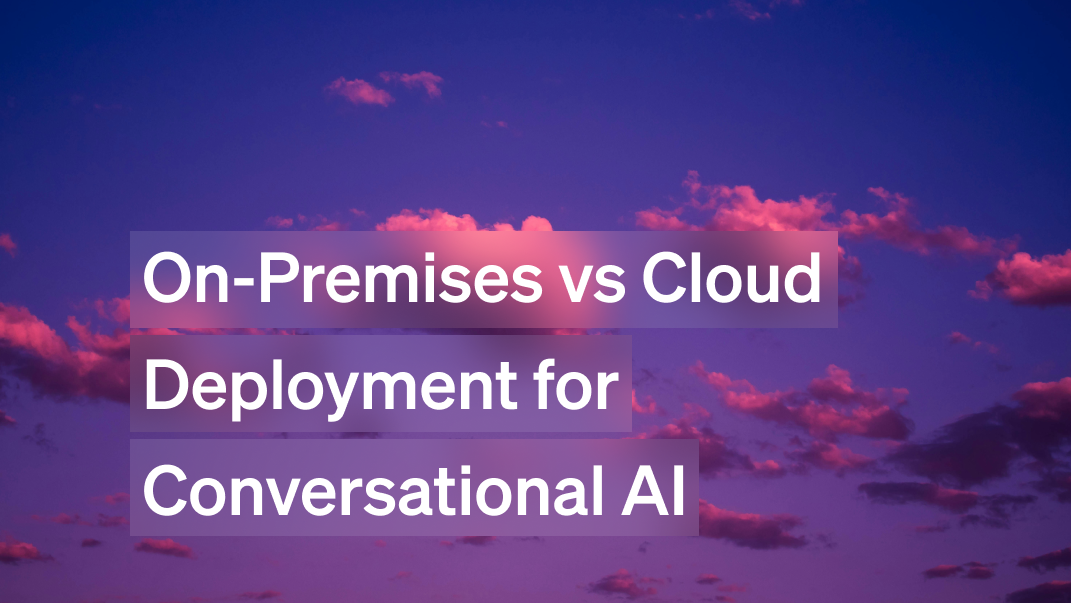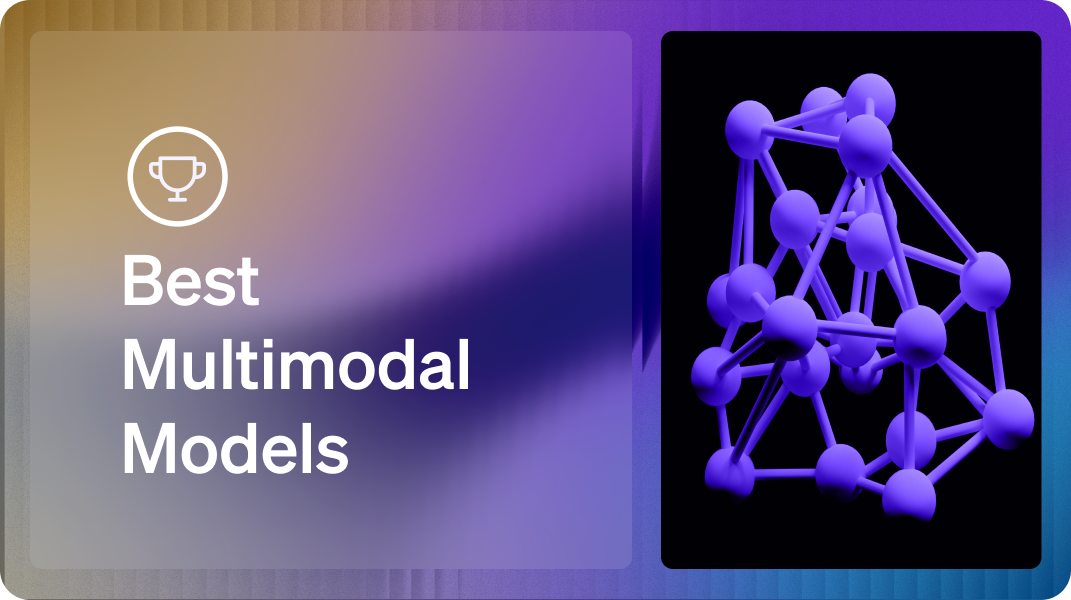As AI-powered solutions continue to evolve, businesses are constantly seeking platforms that align closely with their specific needs. LangChain, while popular, can be limiting for organizations that need greater flexibility, scalability, or more advanced features.
Whether LangChain’s rigidity restricts your capabilities or you’re looking for a platform better suited to large-scale deployment, this guide is here to help you explore top chatbot alternatives. From Rasa’s customizable architecture to specialized platforms like BabyAGI and Microsoft Bot Framework, these options can empower your AI initiatives and provide the solutions your enterprise needs.

1. Rasa
Rasa is a cutting-edge and secure conversational AI platform known for our flexibility and adaptability. Unlike LangChain, the Rasa Platform architecture is LLM-agnostic, meaning businesses can switch between language models as their needs evolve. This flexibility empowers organizations to select models best suited to their data and use cases, with easy integration of external data and knowledge bases.
Key features:
- Rasa Studio: Our no-code UI enables non-technical users to participate in the design and iteration of conversational AI workflows, enabling a more collaborative development process.
- Customization: We offer comprehensive customization, allowing developers to fine-tune models and conversation flows to meet unique business requirements.
- Community support and innovation: Our thriving community provides extensive resources, we frequently update our technology, and we offer ongoing support for enterprise-level projects.
Compared to LangChain, we have a more adaptable and feature-rich platform that’s easy to integrate and well-suited to enterprise needs. Our architecture supports seamless integration with existing data sources and offers extensive customization options to match specific business requirements.
We have Resident AI Engineers on staff for added support, who provide expert guidance to help teams optimize, debug, and fine-tune their AI implementations. They also guide teams in prompt engineering and testing with prompt templates to optimize performance.
Curious to see how LangChain and Rasa compare in cost, latency, and more? Take a look at this blog.

2. BabyAGI
BabyAGI is an agile, experimental platform crafted for creating autonomous AI agents and generative AI experiments. Startups, research teams, and those in early-stage development can quickly iterate on AI functionalities without extensive lines of code in their codebase.
Key features:
- Rapid prototyping: Ideal for rapid experimentation, BabyAGI enables swift iteration and testing of decision-making models and agents like auto-GPT and agent-GPT.
- Focus on autonomous agents: It’s ideal for applications requiring RAG (retrieval augmented generation) capabilities, though its limited scope suits it best for early-stage projects.
However, BabyAGI’s lightweight and experimental nature may limit its suitability for enterprise deployments. It lacks the mature, enterprise-grade stability and security features that platforms like LangChain and Rasa provide, making it best suited for early-stage development or highly specialized projects.
For teams that require advanced customization, scalability, and enterprise-level support, BabyAGI may fall short, but it offers an advantage for more specialized applications.
3. GradientJ
GradientJ is designed to streamline machine learning workflows and make model deployment more efficient, making it a valuable asset for organizations deeply focused on machine learning tasks. Organizations focused on ML will appreciate its compatibility with APIs and other data sources, streamlining work for teams managing complex Python and JavaScript pipelines.
Key features:
- Streamlined model management: Reduces the latency of function calling in ML tasks, ideal for handling embeddings and maintaining multiple ML models.
- Seamless integration with ML platforms: It integrates smoothly with various machine learning ecosystems, ensuring workflow compatibility and enhancing collaboration across teams involved in ML projects.
Although LangChain serves a wider range of applications, GradientJ’s specialization makes it ideal for organizations prioritizing machine learning over conversational AI. Its focus on ML-specific tasks makes it a great choice for companies that want to enhance their machine-learning capabilities rather than develop a more generalized conversational AI platform.
4. LlamaIndex
LlamaIndex is built for enterprises that need to efficiently index and retrieve large datasets, optimizing for speed and data processing. It’s a great fit for teams handling extensive data sources and structured text generation tasks.
Key features:
- Efficient data handling: Excels at retrieving embeddings and knowledge from large vector stores.
- Industry-focused utility: LlamaIndex supports streamlined, large-scale data management critical to daily operations, which is ideal for sectors that rely on high-performance data processing.
While LlamaIndex excels at data tasks, it doesn’t provide the broader AI and conversational functions available in platforms like LangChain or Rasa. This makes it an effective complementary tool rather than a replacement for full conversational AI solutions.
5. PyTorch
PyTorch is a widely used deep learning framework popular for its flexibility in developing complex AI models. With an active community, PyTorch supports the research and production of AI applications.
Key features:
- Versatile framework: PyTorch supports a broad range of AI models and applications, offering flexibility for technical teams.
- Strong community support: PyTorch benefits from a large user community, providing abundant resources and rapid updates.
Although LangChain specializes in conversational AI, PyTorch is more suitable for deep learning research and complex model development. It may require more advanced technical knowledge, making it a better fit for teams with strong AI expertise.
6. AutoChain
AutoChain is designed to automate routine tasks within AI workflows, providing efficiency for teams managing multiple models. Streamlining backend processes reduces the time and effort required for maintenance, letting teams focus on strategic objectives.
Key features:
- Workflow automation: Reduces manual intervention in repetitive tasks, making AI operations smoother and faster.
- Backend focus: While LangChain targets conversational AI, AutoChain enhances backend functionality, helping teams improve their overall workflow.
AutoChain works well alongside tools like LangChain. It handles essential backend operations without overlapping with conversational AI functions, making it an effective addition for teams aiming to boost efficiency in AI model management.
7. Botpress
Botpress is an open-source conversational AI platform primarily focused on building and deploying intelligent assistants. Its developer-centric design makes it a go-to for those with a deep technical background.
Key features:
- Developer-friendly tools: Botpress offers tools tailored to developers, enabling the creation of highly customized conversational assistants.
- Enterprise-grade open source: As an open-source platform, Botpress allows for maximum customization and integration into unique workflows.
Botpress targets developers who want detailed control over their applications. While LangChain offers a more flexible, all-in-one approach, Botpress gives developers the tools to build customized solutions from scratch, although with a larger learning curve.
8. Microsoft Bot Framework
Microsoft Bot Framework is a comprehensive suite for building, testing, and deploying conversational AI across channels. This framework is especially advantageous for enterprises already integrated into Microsoft’s ecosystem.
Key features:
- Seamless integration with Microsoft products: Its built-in compatibility with Microsoft tools makes it ideal for enterprises in the Microsoft ecosystem.
- Multi-channel support: It enables deployment across various platforms, enhancing reach and accessibility.
In contrast to LangChain’s open-source approach, Microsoft Bot Framework offers enterprise-level support and integration capabilities. This makes it more appealing to organizations seeking a structured, enterprise-friendly conversational AI solution.
9. TensorFlow
TensorFlow is a versatile, open-source machine learning framework widely used for developing scalable AI models, including conversational AI applications.
Key features:
- Scalability: TensorFlow’s architecture supports production-level scalability and is suitable for large enterprises with substantial AI needs.
- Extensive AI development support: A comprehensive toolkit enables developers to create advanced AI applications.
While LangChain specializes in conversational AI, TensorFlow offers a more generalized, highly scalable solution. Its steep learning curve, though, means it’s better suited for organizations with advanced AI capabilities.
10. HuggingChat
HuggingChat, built on the Hugging Face platform, focuses on open-source conversational AI, leveraging large language models to deliver natural language understanding.
Key features:
- Language model integration: HuggingChat is compatible with various LLM applications, offering flexibility for developing advanced conversational AI.
- Customizable NLP applications: Its focus on language processing makes it suitable for tasks that need in-depth NLP capabilities.
While LangChain offers a broader range of AI tools, HuggingChat specializes in natural language processing, making it an excellent option for businesses prioritizing NLP and conversational interactions.
Where Rasa Stands Out Against the Rest: Top Features and Benefits
The Rasa Platform is known for flexibility, scalability, and customization capabilities, designed to empower enterprises to build AI solutions that align with their specific needs. Here’s how Rasa leads the way:
Flexibility and Customization
We built Rasa to give enterprises complete control over their AI, allowing them to create solutions tailored to distinct business requirements. Unlike platforms that may impose rigid structures, Rasa allows you to customize workflows, seamlessly integrate unique language models, and design proprietary conversation flows that support your brand’s specific needs and goals.
LLM Agnosticism
Rasa’s LLM framework lets organizations choose the language models that best fit their objectives, with the flexibility to adapt and switch models as technology evolves. This adaptability makes Rasa a future-proof choice, ensuring your business can utilize new advancements without being locked into a single provider.
Enterprise-Grade Security
We understand the importance of security, particularly in industries with strong data requirements. Rasa’s on-premise deployment option enables organizations to control their data completely, addressing high security and compliance needs. This level of control is invaluable for industries like finance, healthcare, and government, where data privacy is crucial.
Take a look at this webinar to see how Rasa navigates LLM compliance in regulated industries.
Operational Transparency
Our unique Rasa Inspector tool empowers developers to refine and troubleshoot their AI assistants with real-time insights. This powerful debugging feature allows teams to test conversations live, visualize active flows, and review critical data like slot values and tracker states-all in one streamlined interface.
By enabling a detailed view of each interaction, Rasa Inspector helps ensure accurate responses and smooth, reliable dialogue management, making it easier to fine-tune and optimize assistants to meet specific business needs.
Make Rasa your top choice among LangChain alternatives
For enterprises looking for a secure, flexible, and highly customizable AI platform, Rasa is the ideal choice. With strong language model integration, a strong commitment to security, and a highly customizable framework, Rasa offers a powerful solution for companies with evolving and complex AI needs.
Ready to explore what Rasa can bring to your business?
Contact our sales team today to learn more about building adaptable, scalable AI solutions with Rasa.




